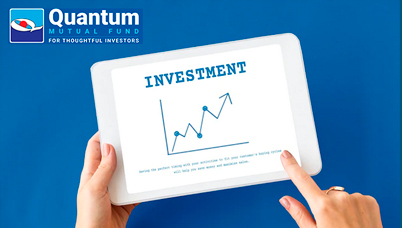Opportunity Amidst Turmoil
Posted On Monday, Mar 16, 2020
For long term observers of equity markets, the wild gyrations observed in the past two weeks, is once in a decade event. The last time we witnessed such deep, globally synchronised sell offs was in 2008, when the global financial system essentially went in a freeze after large financial institutions in the western world including Lehman brothers went insolvent due to problems emerging in the US subprime markets.
The major difference between the correction 2008 and 2020 is, the correction in 2008 was on the back of very strong earnings growth and essentially took market participants by surprise. The correction in 2020 especially in India was not totally unexpected given that markets have been rising devoid of any earnings growth. What has surprised many, however, is the pace of fall, as most indices have lost ~20% from their respective peaks, in just over a month.
The Covid 19 impact
As governments race around the world to stop the spread of the novel coronavirus, we are seeing an increasing trend to impose restrictions on public gatherings as well as shutting malls, movie theatres, sporting events etc. One expects companies' dependent on discretionary spend to be the first to get impacted. How long this will last is any one's guess, but given that the countries who were the early epicentres of the new virus are reporting lower cases, one expects the economic impact to be limited and transitory.
Matters in India have been further complicated by problems in the banking systems with the blow up of Yes Bank and one expects an increasing period of risk aversion in credit markets like one saw after IL&FS default. This may act a bigger near term drag, as savers and lenders both prioritise safety over higher returns, making credit availability to businesses lower down the rating ladder scarce.
Some positives on the horizon
The extended monsoon has ensured reservoir levels are at a multi decade high, driving expectations of yet another record farm output. Rising food and dairy inflation also suggests higher farm output combined with higher realisations which may in turn trigger a revival in demand from rural India. While food inflation may see some tempering after the record output, it still could see a higher trend than what has been seen over the last few years.
The other big positive remains the falling international crude prices. It not only improves India's current account position (It is estimated that $1 fall in crude prices lowers India's current account deficit by ~$1.5 bln dollars) but also improves the government's fiscal situation as traditionally the government has used the fall to shore up revenues by increasing taxes than to pass on full benefits to end consumers.
Outlook
It is difficult to predict how much the markets could correct if this virus spread becomes uncontrollable. Our interaction with our portfolio companies suggest that so far, they have not seen any major disruption in their supply chain and the managements believe they would not be significantly impacted by shutdowns in China. We believe most of our portfolio companies have robust balance sheets and should be able to last out the near-term decline in consumption in their consumer markets including India.
The correction in the markets has allowed us to deploy our cash allocation giving us an opportunity to buy quality stocks at attractive valuations. The correction offers a great opportunity for investors looking to allocate to equity markets for the long term. At current valuations, Investors sitting on the side-lines looking to deploy may start doing so in a staggered manner. Investors running their SIPS can continue to do so, and are advised to stay invested.
Disclaimer, Statutory Details & Risk Factors:
The views expressed here in this article / video are for general information and reading purpose only and do not constitute any guidelines and recommendations on any course of action to be followed by the reader. Quantum AMC / Quantum Mutual Fund is not guaranteeing / offering / communicating any indicative yield on investments made in the scheme(s). The views are not meant to serve as a professional guide / investment advice / intended to be an offer or solicitation for the purchase or sale of any financial product or instrument or mutual fund units for the reader. The article has been prepared on the basis of publicly available information, internally developed data and other sources believed to be reliable. Whilst no action has been solicited based upon the information provided herein, due care has been taken to ensure that the facts are accurate and views given are fair and reasonable as on date. Readers of this article should rely on information/data arising out of their own investigations and advised to seek independent professional advice and arrive at an informed decision before making any investments.
Mutual fund investments are subject to market risks read all scheme related documents carefully.
Please visit – www.QuantumMF.com to read scheme specific risk factors. Investors in the Scheme(s) are not being offered a guaranteed or assured rate of return and there can be no assurance that the schemes objective will be achieved and the NAV of the scheme(s) may go up and down depending upon the factors and forces affecting securities market. Investment in mutual fund units involves investment risk such as trading volumes, settlement risk, liquidity risk, default risk including possible loss of capital. Past performance of the sponsor / AMC / Mutual Fund does not indicate the future performance of the Scheme(s). Statutory Details: Quantum Mutual Fund (the Fund) has been constituted as a Trust under the Indian Trusts Act, 1882. Sponsor: Quantum Advisors Private Limited. (liability of Sponsor limited to Rs. 1,00,000/-) Trustee: Quantum Trustee Company Private Limited. Investment Manager: Quantum Asset Management Company Private Limited. The Sponsor, Trustee and Investment Manager are incorporated under the Companies Act, 1956.
Related Posts
-

Invest without Stress - With Quantum Mutual Fund!
Posted On Monday, May 09, 2022
Since inception, Quantum AMC has stayed true to its Vision and Mission.
Read More -

Active or Passive Investing: Which Style is Right for You?
Posted On Tuesday, Apr 26, 2022
With such a wide variety of investment avenues and styles, you may be confused as to which is the best for you.
Read More -

Stay Ahead of Inflation During These Uncertain Times
Posted On Wednesday, Apr 13, 2022
Inflation has been slowly but steadily eating into the savings of investors.
Read More



